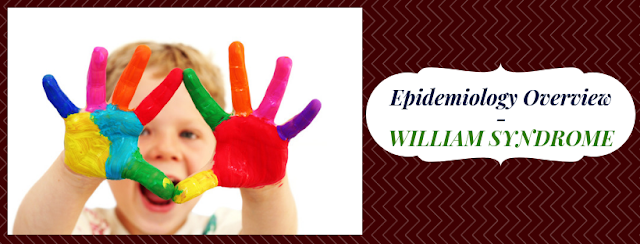Epidemiology Overview - WILLIAM SYNDROME

Described by “William an Beuren” in 1961 Rare genetic Condition The clinical manifestations include a distinct facial appearance, cardiovascular anomalies that may be present at birth or may develop later in life, idiopathic hyper calcemia and a characteristic developmental and behavioral profile. Path physiology:- Haploinsufficiency due to a deletion at chromosome band 7q11.23 that involves the elastin gene (ELN) is implicated. · William syndrome is not solely caused by elastin haploinsufficiency; the deletion involves a region that spans more than 28 genes – Contiguous gene deletion syndrome. · Copy number variants in the 7q11.23 region have been found to be associated with autism in a study of over 4000 individuals who did not have William syndrome. Epidemiology:- · US – 1/7500 -20,000 birth · Mortality – Cardiovascular disease · Sudden Death – SVAS, Severe pulmonary stenosis and myocardial ischemia secondary

